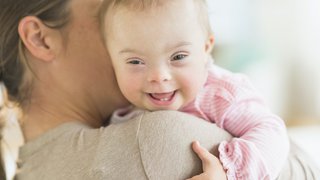Healing – and learning – from pregnancy losses: A pediatrician shares her story
October 19, 2021

There are no words to adequately describe the feeling of losing a pregnancy. Waves of emotions crash into you – from sadness, anger, and guilt to loneliness, isolation, and confusion.
And it’s impossible not to ask: Why me? Why now?
I have experienced four pregnancy losses. As a mother and a neonatal specialist, I still deal with the indelible memories and emotions of those important chapters in my life. It’s essential to remember, even at the darkest moments, you are not alone.
My experiences have helped me develop a deep empathy and compassion for patients and their families, and I often share my story with them because pregnancy loss requires a special kind of understanding from others to help you move forward.
My first pregnancy with my now 12-year-old son was completely normal – no complications or indications that any subsequent pregnancies would be a problem.
My second pregnancy started the same way. At approximately 17 weeks, my husband and I brought our son to a 4D ultrasound appointment, where we learned we were expecting a girl. The joy of that moment immediately turned to devastation: our baby girl’s heart had stopped.
Because I was so far along, I needed either a dilation and evacuation (D&E) procedure to remove the fetal tissue or to be induced and deliver vaginally. My husband and I chose the latter because we wanted a chance to hold our daughter. We also created keepsakes with her hand and footprints.
The likelihood that this would happen again was statistically unlikely. But my following two pregnancies resulted in early miscarriages. In 2014, I gave birth to my daughter. In 2020, I became pregnant with another boy, but we lost him at 15 weeks.
The statistics show that pregnancy loss is incredibly common, occurring in approximately 1 in 4 pregnancies. Knowing these statistics, however, does not ease the pain or reduce feelings of shame or guilt some women experience.
Often, there is no identifiable cause and nothing a patient could have done differently to prevent the loss. Sharing my story with patients can help them feel better supported. I also offer a few overriding thoughts that continue to help me with the grieving process.
1. Without answers, we learn to accept uncertainty
Determined to understand the causes of the later miscarriages, we requested tests to check for common risks such as:
- Blood clotting complications
- Chromosomal abnormalities
- Viral or bacterial infections
Every test was negative, so we don't have an explanation as to why we lost the pregnancies. I knew, statistically, they were not supposed to happen; 80% of miscarriages occur during the first 12 weeks. Eventually, I learned that accepting the unexplainable is as painful as it is necessary to grieve and heal after pregnancy loss.
The decision to get pregnant again can be particularly challenging. A positive pregnancy test elicits anxiety as well as joy. For some moms, the uncertainty is too painful for them to want to try again, and I completely understand that. It’s a very personal decision.
My husband and I have decided together that the yearning for another child hasn’t gone away. A subsequent pregnancy will never replace those we’ve lost, but we are willing to face the unknown together.
2. Everyone grieves differently
My husband and I managed our range of emotions following a miscarriage much differently, and recognizing that fact has helped us both.
I prefer to talk about it, eventually, after some time alone. When I’m ready, I want to talk about the experience and who our child might have been. I occasionally look through pictures from the pregnancies and go through the memory boxes I created.
My husband talks about it sometimes, but he doesn’t want to see the memories. After our most recent loss, he invited friends over to play video games. The distraction was just what he needed – to be surrounded by people he loved who could take his mind off the pain for a while.
We also helped our son and daughter grieve. My son was 3 when we experienced our first loss, and all he knew was that his parents were sad. With our most recent loss, both children understood what it would mean to add a baby to the family, and we had already picked out a name. Telling them what happened was extremely difficult. We tried to help each of them deal with the pain in their own unique way.
Several children’s books provide gentle, simpler ways to help children understand and cope with pregnancy loss. You can also talk to your pediatrician about how the stress might affect your children’s physical and emotional health.
3. Support comes in many forms
Although the sharpness of the pain and grief of pregnancy loss lessens over time, it never goes away. Some days are better than others, but over time, good days start to outnumber the bad. I encourage patients to find at least one form of support outside the home. I’ve leaned on three distinct sources:
- Therapy. I was fortunate to find a therapist who specializes in pregnancy-related trauma. I needed help to handle being surrounded by children and babies at work every day. The therapist helped me process my grief while taking care of myself, my family, and my patients.
- Friends and family. Loved ones often mean well but don’t know what to say or do. There’s really nothing good to be said, so just being there is meaningful. For me, statements like, “It happened for a reason” or “You can have another baby” were hurtful to hear. What helped most was active support with things like child care and household tasks, and taking my lead on when and how much I wanted to talk about my experience.
- Support groups. A network of support groups is available for moms who have experienced pregnancy loss, and some have chapters in different cities where you can meet in person or online. October is Pregnancy and Infant Loss Awareness Month, and many of these groups host remembrance walks and activities, including a “wave of light” night on social media, when we each light a candle for the children we’ve lost and post the pictures online.
The medical field is starting to shift toward trauma-informed care for women who experience pregnancy loss, but we have a long way to go to help providers better understand the inherent stress a patient affected by a previous pregnancy loss might bring into their current medical situation. She might need more reassurances and time with their provider.
At UT Southwestern, my neonatal colleagues and I often collaborate with our psychology associates to offer more well-rounded support for patients who experience pregnancy loss or give birth to newborns who have short life expectancies.
If you need physical or emotional care after a pregnancy loss, please request an appointment online or call 214-645-8300.











